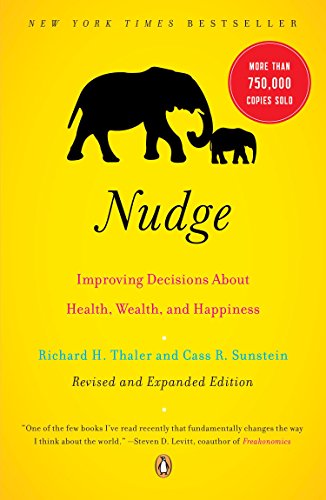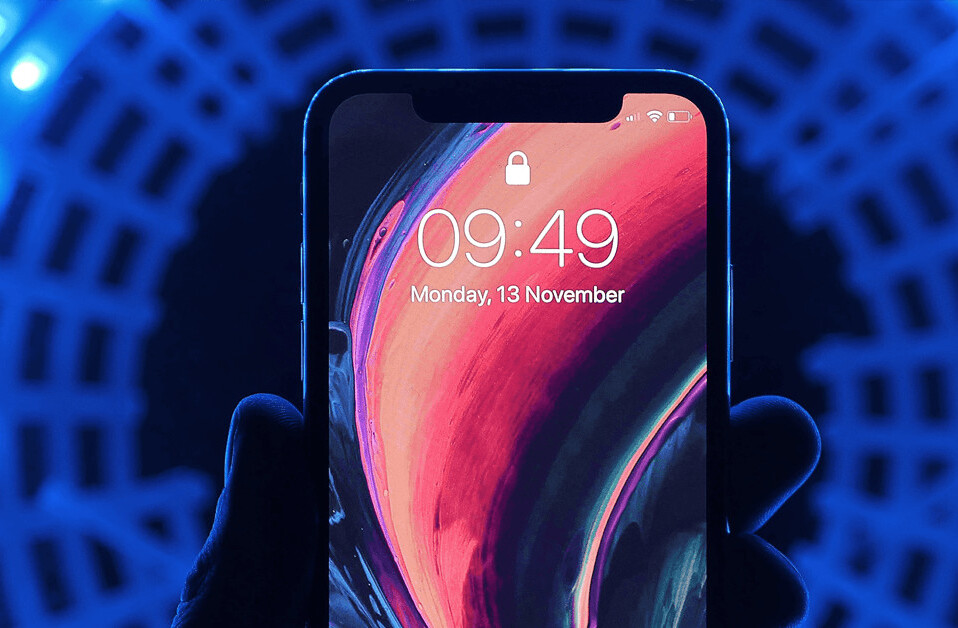
Whether or not you get to bed at a reasonable hour, eschew the frozen brownie sundae, or hold true to your commitment to learn to code a little every day hinges on a whole slew of different mechanisms being either exercised or suppressed in your brain.
It’s daunting — we know. But staying true to your better nature is easier when you’ve got the tools to get there.
We handpicked these five books to help you find out why your mind sabotages those good intentions and what you can do to start making better choices now.
Freakonomics – A Rogue Economist Explains the Hidden Side of Everything
 From how to raise your children and online dating to purchasing a flat, our lives are full of choices that seem elementary at first glance. But the truth is, we’re often swayed by provocations that aren’t immediately evident, subliminal powers influencing the way we choose. Freakonomics puts common sense under the microscope and answers intriguing questions such as why crack dealers often live with their moms.
From how to raise your children and online dating to purchasing a flat, our lives are full of choices that seem elementary at first glance. But the truth is, we’re often swayed by provocations that aren’t immediately evident, subliminal powers influencing the way we choose. Freakonomics puts common sense under the microscope and answers intriguing questions such as why crack dealers often live with their moms.
“It was announced that any parent arriving more than ten minutes late would pay $3 per child for each incident. The fee would be added to the parents’ monthly bill, which was roughly $380. After the fine was enacted, the number of late pickups promptly went…up.”
Predictably Irrational – The Hidden Forces That Shape Our Decisions
 Why is it that just as we manage to lose weight, we become powerless to resist the sugary charms of a double chocolate cookie? Why would a mother despair if her son were to offer to pay her for her cooking? And why do painkillers work better when patients think that they’re expensive? Predictably Irrational shows just how willy nilly our reasoning actually is, why, and what we can do about it.
Why is it that just as we manage to lose weight, we become powerless to resist the sugary charms of a double chocolate cookie? Why would a mother despair if her son were to offer to pay her for her cooking? And why do painkillers work better when patients think that they’re expensive? Predictably Irrational shows just how willy nilly our reasoning actually is, why, and what we can do about it.
“But suppose we are nothing more than the sum of our first, naive, random behaviors. What then?”
Nudge – Improving Decisions About Health, Wealth, and Happiness
 How do you get an overweight teenager to drop the candy bar in favor of an apple? How in the world do we persuade people to pay into a pension fund that will keep them out of poverty in old age when it does them no good in the here-and-now?
How do you get an overweight teenager to drop the candy bar in favor of an apple? How in the world do we persuade people to pay into a pension fund that will keep them out of poverty in old age when it does them no good in the here-and-now?
Nudge shows how challenges like these become easy as pie when you make change by using subtle pushes in the right direction.
“First, never underestimate the power of inertia. Second, that power can be harnessed.”
Carrots and Sticks – Unlock the Power of Incentives to Get Things Done
 Carrots and Sticks also addresses our tendency to shy away from getting things done, even when we know they’re good for us.
Carrots and Sticks also addresses our tendency to shy away from getting things done, even when we know they’re good for us.
The book introduces the idea of the Commitment Contract, an instrument that can help us quit smoking or work out more regularly. Ian Ayres gives concrete examples as to how you can use the carrot and the stick to their best advantages and make changes in yourself and others.
“We are seduced by the immediacy of gratification.”
Thinking, Fast and Slow
 Nobel Laureate Daniel Kahneman draws on his decades of research to paint a clear, compelling picture of the human psyche. Thinking, Fast and Slow introduces the two fundamentally different ways of thinking that define us. The book shows how our thoughts and actions depend on which part takes the helm, how great the resulting risks are, and how we can master our minds to make wiser judgments.
Nobel Laureate Daniel Kahneman draws on his decades of research to paint a clear, compelling picture of the human psyche. Thinking, Fast and Slow introduces the two fundamentally different ways of thinking that define us. The book shows how our thoughts and actions depend on which part takes the helm, how great the resulting risks are, and how we can master our minds to make wiser judgments.
“Our comforting conviction that the world makes sense rests on a secure foundation: our almost unlimited ability to ignore our ignorance.”
Want to reprogram your brain? We love full books, but important changes can’t always wait! You can read the key insights from all five of these books in under an hour. That’s one lunch break, one session on the elliptical machine, or one extra-long commute home. Check it out free here.
Read Next: 10 books that will change how you think forever
Image credit: Shutterstock
This post first appeared on the Blinkist.
Get the TNW newsletter
Get the most important tech news in your inbox each week.




